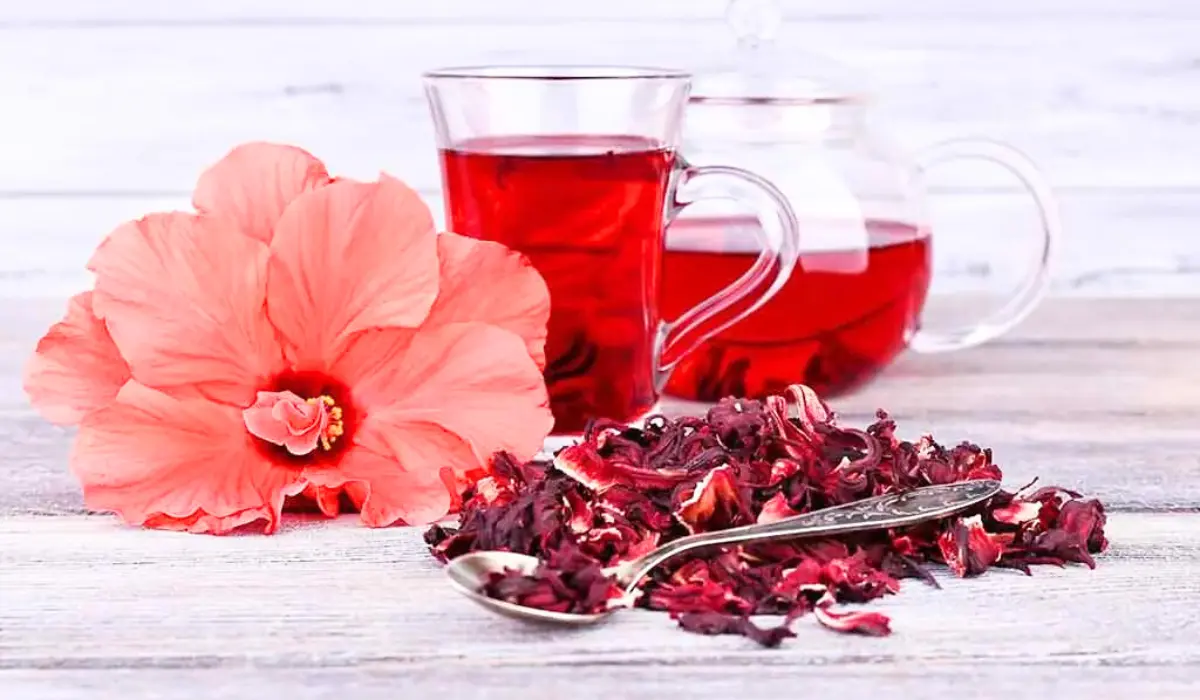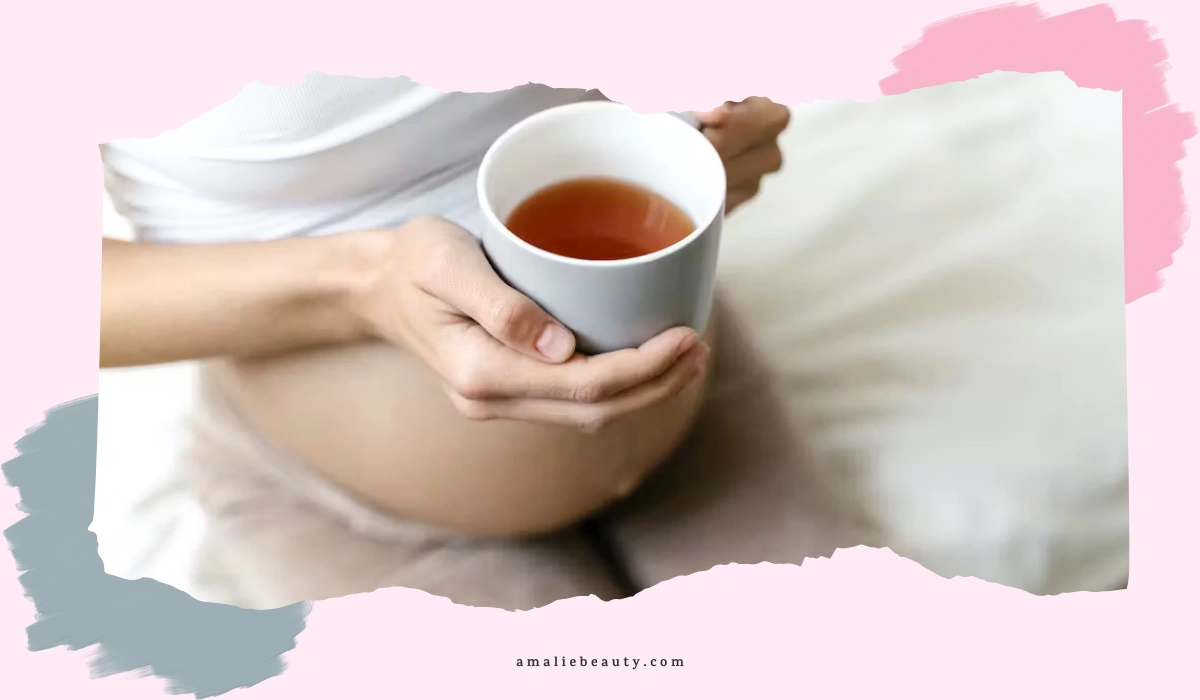Pregnancy requires the elimination of many foods and drinks because they could harm your health or that of your baby and compromise your pregnancy. Here is a summary, you will find all the details and alternatives you need in the rest of this article. We’ll look into the detailed benefits of Hibiscus and the possible effect of the tea on pregnancy.
Is Hibiscus Safe During Pregnancy?

Hibiscus tea can cause fluctuations in hormonal levels, which is not safe, especially during the first trimester. Hibiscus tea may also have effects that stimulate menstruation or blood flow to the uterus. This can cause bleeding, cramping, or even early labor.
Hibiscus is therefore an herb that you should use with caution if you are pregnant, as evidence indicates the possibility of harmful effects during pregnancy. It is good to seek your doctor’s advice before taking medication.
Hibiscus is a tropical plant most often used in herbs and as a food coloring. Hibiscus flowers are also edible, it have long been used for various health problems, including:
There is some evidence that hibiscus may be used to treat cancer and hypertension. Your risk of complications may increase if you drink hibiscus tea. You must be cautious. Hibiscus could cause the uterus to contract, which could lead to miscarriage. Products marketed as pregnancy teas may still contain dangerous ingredients, including hibiscus, and their use should always be discussed with your doctor before consumption.
Other benefits, more precisely: traditional use
Traditional uses of hibiscus tea range from treating cancer to digestive disorders. According to the handbook of energy crops, an infusion of hibiscus flowers can help fight infectious organisms, cleanse the blood and lump, and soothe and tone the digestive tract. Conditions that hibiscus tea can treat include cough: heart problems, hypertension, and scurvy. Despite the tradition of medical use, there is no conclusive clinical evidence to support the use of hibiscus for these conditions.
Is hibiscus tea good for your weight loss
Drinking hibiscus tea every day is a great way to promote weight loss, as this plant contains anthocyanin, phenolic compounds, and flavonoids that can help: regulate genes involved in lipid metabolism, stimulating fat elimination; attenuate adipocyte hypertrophy by reducing the size of fat cells. Here are the best hibiscus-based infusions that we have carefully selected and which have special effects on your well-being:
Influence estrogen
According to a study by Guru Jambheshwar University of Sciences and Technology in India, the use of hibiscus tea as a natural contraceptive dates back to ancient times. The study showed that hibiscus root extracts can influence estrogen levels and prevent implantation and pregnancy. Avoid drinking hibiscus tea during the first trimester of pregnancy due to the plant’s possible interference with hormonal activities.
Antioxidant
According to the Bastyr Center for Natural Health, hibiscus tea is rich in antioxidants, particularly flavonoids. This special compound helps protect the body cells from damage caused by free radicals, and toxic elements that can contribute to degeneration and disease in the body.
Consuming a high amount of antioxidants, like those found in hibiscus tea, can help boost your immunity and other body systems and keep you and your baby healthy and strong. However, there is no conclusive clinical evidence on the benefits of the anti-oxidant contained in hibiscus tea.
Blood pressure
The traditional use of hibiscus to lower blood pressure may have some validity. A 2004 study published in phytomedicine showed that a cup of hibiscus tea a day has an effect similar to that of the blood pressure medication captopril and can lower blood pressure by dilating blood vessels, according to Bastyr Center for Natural Health.
Blood pressure is often increased during pregnancy, and hibiscus tea could help lower it with minimal side effects. However, there is no conclusive clinical evidence to support its medical use. Before taking hibiscus tea, as said earlier consult your doctor.
Read More: 5 Dos And Don’ts Of Pregnancy Skincare: Pregnancy Beauty
Scientific studies of the effects of hibiscus on pregnancy
For obvious ethical reasons, it is very difficult to conduct human trials when we see how large doses of herbs or dietary supplements affect pregnant women and their babies. However, several studies have been carried out on the effect of hibiscus on pregnant rats, within the framework of controlled experiments.
An article published in 2016 emphasizes that you must be careful when consuming hibiscus infusion during pregnancy. Indeed, rat studies suggested that consuming hibiscus extract could lead to delayed puberty, increased body weight, and BMI in rats’ offspring.
In 2008, a Nigerian study suggested that hibiscus could be the cause of maternal malnutrition and delayed puberty in children of mothers who consumed hibiscus according to Nigeria Journal of Physiological Sciences. It is difficult to conclude small-scale studies on rights, but the consensus is that one should err on the side of caution when it comes to drinking hibiscus tea during pregnancy. Hibiscus tea should be avoided if possible and replaced with other, saver herbal tea during pregnancy.
Can you drink hibiscus tea in any trimester?
In 2003, the International Journal for Obstetrics and Gynecology examined the possible effects of various herbs and their effects on pregnant women. It has been noted that hibiscus could have an Emmenagogue effect. This means that it can increase menstrual flow.
Although there is no proven link between hibiscus and miscarriages, this Emmenagogue effect suggests that it is probably wise to avoid hibiscus during the first trimester. However, due to the question regarding the safety of hibiscus tea as a whole, it is best to avoid it every trimester.
Wrap Up
Finally, you may have a question like I accidentally drank hibiscus tea or hibiscus, Should I be worried? if you drank hibiscus tea during your pregnancy, you may now be rightfully concerned. Rest assured, herbal tea contains much lower quantities than food supplements, based on this plan.
Likely, a lower dose won’t be harmful, but it is probably best to stop drinking hibiscus tea to avoid any cumulative effects and replace the herbal with another option for the rest of your pregnancy.

